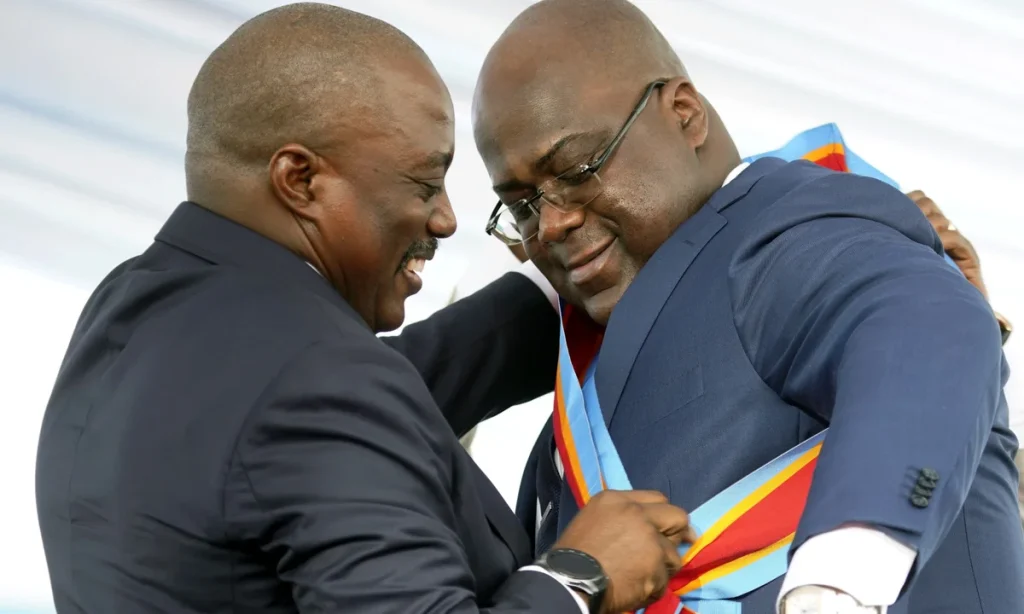President Paul Kagame has laid bare what many have long suspected: Félix Tshisekedi was never truly elected as president of the Democratic Republic of Congo. Speaking with authority as someone who personally mediated the crisis surrounding Tshisekedi’s first contested victory in 2018, Kagame didn’t mince words. “He was not elected both times. The first time, he was handed over power by Joseph Kabila.
All parties involved in the negotiations argued that Congo needed a symbolic precedence. It had never had an election in 60 years, since independence. Kabila listened to Kagam, he let it go.
The second election, last year, where Tshisekedi during rallies in Bukavu, equated Kagame to Hitler and described him as “imbecile,” “Nyankaragata” (an insult used to demean someone, often implying that they are worthless, reckless, or dishonourable), he just declared himself, “and told everybody to shut up, and that’s what happened.”
This admission, coming from the leader who chaired the African Union at the time and helped negotiate Kinshasa’s stability, exposes the fragile foundations of Tshisekedi’s rule. His initial rise to power nearly brought the country to its knees, forcing a negotiated settlement rather than an outright victory at the polls. Even Corneille Nangaa, then the electoral commission chief, was pressured into declaring Tshisekedi the winner—only to later resign in disillusionment.
Ironically, Nangaa has now resurfaced as a key figure in the AFC working alongside M23 as its coordinator. His alliance with a rebel group that Kinshasa demonizes as Rwanda-backed further complicates Tshisekedi’s narrative. If Nangaa, the very man who orchestrated his victory under duress, has now aligned with those fighting against the Congolese government, what does that say about the legitimacy of Tshisekedi’s presidency?
For the past five years, Tshisekedi has built his political survival on a campaign of blame—deflecting attention from Kinshasa’s governance failures by scapegoating Rwanda. His government continues to collaborate with the FDLR, the militia composed of remnants of the 1994 Genocide against the Tutsi, while the world conveniently looks away. The hypocrisy is staggering. Rebels continue to massacre civilians in eastern Congo, deadly weapons pile up on both sides of the border, and when those forces shell Rwanda, the same voices that rally behind Tshisekedi fall into silence.
Meanwhile, the UN has been stationed in the DRC for over two decades, with a staggering US$40 billion spent on so-called peacekeeping. Yet, the violence remains unchanged, and the very institutions meant to safeguard democracy have instead shielded a leader whose legitimacy was questionable from day one.
As Tshisekedi embarks on another term, the real question isn’t about Rwanda—it’s about his own presidency. No amount of diplomatic grandstanding, blame games, or international alliances will change the reality that his rule was built on a lie. And now, even those who once ensured his survival are starting to walk away.
